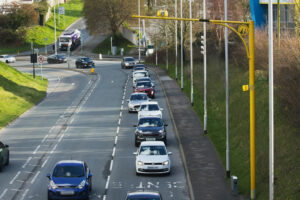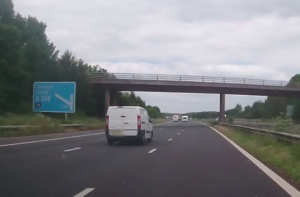Safer Highways, the organisation set up to promote health, safety and wellbeing of roadworkers and road users, has cautiously welcomed the news that Highways England is to increase the speed limit to 60mph through roadworks where feasible, however at the same time tempered it with a note of caution that there needs to be a greater crackdown on those who continually break the law in order to protect roadworkers.
He said: “There should be a higher number of prosecutions brought against motorists who knowingly speed through roadworks.” Last week Safer Highways joined a collaborative taskforce aimed at eradicating road worker abuse. “Over the past three years the supply chain collective has changed perceptions around workplace mental health as they continuously strive to improve standards around health, safety and wellbeing for those we put to work on our roads on a daily basis.”
He acknowledging that increasing the speed limit to 60mph would save a total of almost 3,780 hours journey time each day and thus reduced the risk of motorists becoming frustrated and abusing our roadworkers, Mr Robinson also questioned whether the increase placed customer satisfaction over roadworker safety.
He said, “Traffic management incursions occur across the Highways England network with alarming regularity. Between 2015 and 2020, the first Road Investment Strategy period, there were 8,676 incursions recorded.
“Nearly 50%, 3,581 of these, were reported as road users driving into roadworks trying to seek a ‘personal benefit’, such as avoiding a diversion route.
“It is feasible to assume that every minute of every day, we have a member of one of our member company’s teams sitting in an IPV (Impact Protection Vehicle), in a live lane, protecting our roadworkers – all signed off by us as part of a formal and agreed Safe System of Work. Yet, statistics indicate an IPV is struck on average every 10 days across the Strategic Road Network.
“Now imagine if that IPV were to be struck by a vehicle travelling at 10mph faster, what is already a devastating scene could be catastrophic.”
Only last week, the Supply Chain Safety Leadership Group (SCSLG) published a new common intent guidance document around incursions and IPV strikes and in the last year research undertaken by Amey showed that 59% of road users said their safety consciousness was not as high as it should be when negotiating roadworks, while 74% admitted to exceeding speed limits set to protect the roadworkers running those sites-14% admitted to not paying attention to roadwork’s.”. However, when surveyed, 87% of drivers acknowledged that being a roadworker in the UK is a dangerous occupation.
Mr Robinson said there were still areas for improvement, especially around enforcement. He said: “The one area which stands out the most for me is the distinct lack of enforcement around those who broke the law and drove through a ‘Red X’ for personal benefit despite the risk to others.
“This time around if they are truly to achieve the right balance between customer satisfaction, and ensuring the safety of those we put to work to ensure they go Home Safe and Well, then we must be tougher on offenders.
“Technology exists such as Carnell’s SafetyCam and alongside specification of works to ensure they are carried out behind temporary barriers rather than cones, alongside greater enforcement I believe that we could increase the speed limit and, to an acceptable level in roadworks, and ensure greater safety than we already have.
However, this is not something we can simply take lightly or approach half-heartedly.”
























